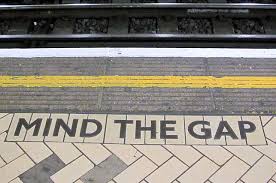Parenting quality explains 40 percent of the cognitive gap between children at age four — more than any other factor. This is the fulcrum of education, inequity and flourishing society. The degree to which a community acknowledges and addresses this dynamic will be the measure of success in measurable strides toward flourishing.
Closing the Parenting Gap
In Can Smart Economics Turn Us Into Better Parents?, Derek Thompson of The Atlantic examines a new study from the Brookings Institution regarding the nature and challenge of the parenting gap. Thompson points out that we can measure specific parenting skills (maternal sensitivity, reading, extracurricular activities, setting expectations) that are very clearly connected to children’s life outcomes. Here is what you should know, and some dynamics that the Atlantic article missed.
- Parents matter. That is the most important finding of the study. If you care about poverty, education, public health or inequality, you need to focus on the crux: parenting, and especially early parenting.
- Marriage matters. Parenting quality varies significantly with family structure. In this, a graph is worth a thousand words:

(Each line represents 10 percentage points, where the axis is 0.) - Parenting correlates with prosperity. There is a wrong way to read the ethnographic information above. The Atlantic is right to point out that, “Among affluent parents, the overwhelming majority of black (85 percent) and Hispanic (88 percent) parents qualified as average or above.” In other words, good parenting is correlated with affluence regardless of race. That only magnifies the importance of improving the quality of parenting.
- It isn’t just about poor parents. The Atlantic quotes Richard Reeves as saying, “The gap that matters is between the poorest and everybody else,” he said. “We need to focus on the bottom.” That is both true, and misleading. It is true that intervening with parents of poor children yields the greatest gains for the children in those families. However, I have argued in The Apprenticeship of Being Human that it is just as important to focus on the “top” because the children of elites will have profound influence for good or for ill upon broader society as the employers (creating living wages, and family friendly workplaces), policy makers (crafting policies that empower parents and support them), and philanthropists (seeding the most promising and powerful parent interventions). Top-down is just as important as bottom-up in addressing the parenting gap.
- Not just a government problem. The Atlantic article frames the conclusion almost entirely in terms of government intervention: “Asking the government to support policies that send workers into a private homes to teach parenting skills smacks of Big Brother — or, perhaps, Big Mother.” Happily, that isn’t the only possible remedy. For example, Believe 2 Become in Grand Rapids has pioneers a philanthropic approach that brings together private, public, and faith institutions to work together, share information and submit themselves to standard measurement.
- Paternalism and the loss of nerve. The crisis with which the Atlantic article finishes is appropriate. Why should anyone – government, non-profit, educator, or otherwise – intrude into the lives of families to tell them what to do? Only the individuals, families and institutions that have three deep convictions will address the parenting gap:
- Parents Matter. This is an empirical claim that the Brookings report has further established.
- Parents are Responsible. This is an ethical claim, which no empirical data can verify. Yet without this conviction, intervention will be fruitless.
- ‘Good’ parenting is both empirical and ethical. There are parenting qualities and skills that can be empirically shown to help children thrive and develop into healthy, well-educated citizens. And only those who have a powerful moral vision of ‘the good’ which they fully believe to be ‘good for all’ and not just ‘good for me’ will have the courage to enter into the pain and frustration of the weakest parents, and to encourage them in cultivating the skills and qualities that will equip their children to make their way in the world.
Question: What organizations, policies, or practices have you observed making a change in the parenting gap?
Please add your voice in the comments below.
